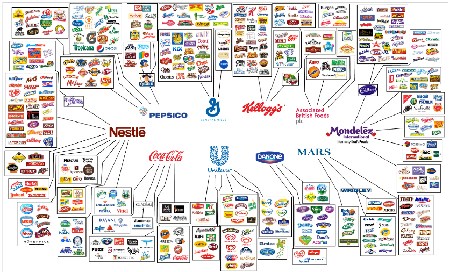The UN has increasingly involved corporations in UN decision making, a trend made obvious in the 2012 Rio+20 Conference. This time, the UN Secretary-General (UNSG) has formed an alliance with the corporate world—outside of the framework of UN Charter-based specialized agencies—to set the global agenda for further corporate capture of our food and food systems. In response, 550 CSOs, social movements and universities have presented a letter to the UNSG António Guterres to object to this trend and to assert people’s role in the development and maintenance of food systems.
The message to the UNSG takes note of corporations in the global industrial agriculture chain are major drivers of ecological destruction, reduction of biodiversity and increasing hunger and malnutrition rates. These privately interested enterprises control 75% of the world’s agricultural land and are responsible for the destruction of 75 billion tons of topsoil or more and raze 7.5 million hectares of forest annually. Moreover, the global industrial agriculture chain accounts for 85–90% of agriculture’s fossil fuel use (and greenhouse-gas emissions).
Meanwhile, family farmers and small-scale food producers remain the source of nearly 80% of the world’s food production (for human consumption and not for biofuel) through environmentally sustainable practices.
And yet, in the face of such a crucial matter of consumption and production, the UN is turning to the very corporate agents that put the world in crisis.
You can read the civil society letter to the UNSG here.
Graphic: Joki Gauthier, Oxfam. For more information on the graphic, see http://www.behindthebrands,org.
Related item:
HIConcern over Treaty System Neglect














